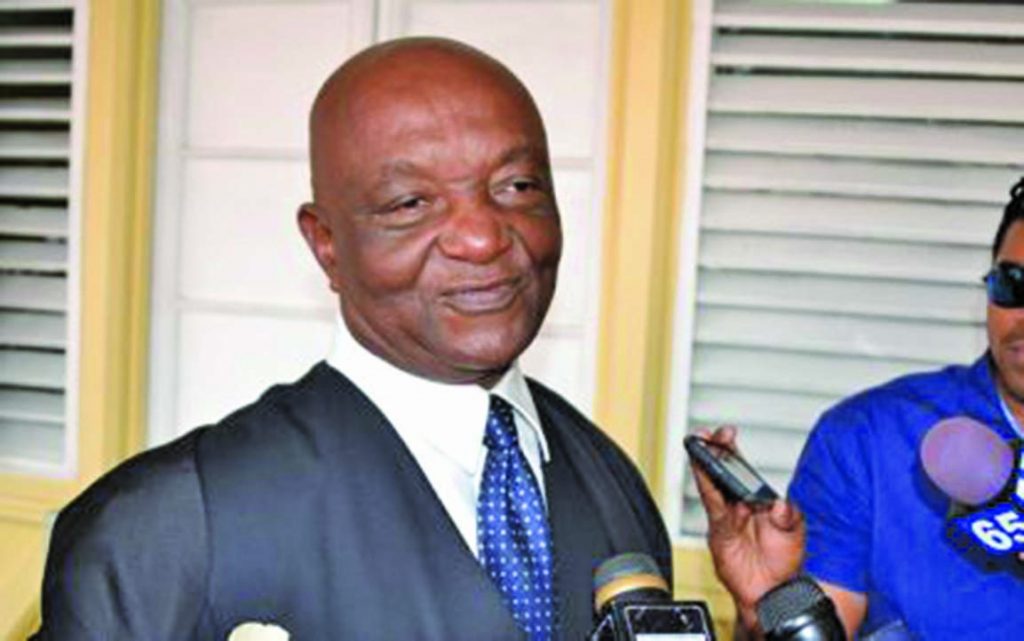Chief Justice to decide Sunday in case for verification of Region Four vote
Chief Justice Roxane George will rule Sunday on whether she can properly hear and determine the case brought before her to block the declaration of the votes from Monday’s polls until the Returning Officer of Region Four complies with the legal provisions for the verification of Statements of Poll from his district.
International governments, including the U.S., UK, Canada, and the EU, along with observers from the Commonwealth, the OAS, the EU and CARICOM, have all said that if the verification of the Region Four Statements of Poll are not completed, the elections results would not be credible.
If the Chief Justice throws out the injunction, it would pave the way for the Chief Elections Officer, Keith Lowenfield to certify the votes cast in every region and pass it to the Guyana Elections Commission (GECOM), which must then meet and agree with the results before the Chairman declares a winner.
GECOM is split even, with three Commissioners representing the government and three representing the Opposition; with the vote at the Commission bound to go along party lines, the Chairperson will ultimately have the final say.
In order to make decisions, the Commission must have a quorum and that quorum could only be had if the PPP Commissioners show up.

A citizen named Reeaz Hollader was granted an injunction by the High Court to block the declaration of the overall results of the elections until the matter is heard and determined.
Senior Counsel Neil Boston, Attorney for Returning Officer Clairmont Mingo, the Chief Elections Officer and the Guyana Elections Commission, has argued that the questions raised in the case are matters that need to be dealt with by an elections petition and that such a petition can only be made when the elections results are declared.

The results of Monday’s vote are not yet known, Douglas argued in court and said the case before the Court is essentially one of procedure that seeks to preserve the purity and transparency of the process.
The injunction against the declaration of the elections results was sought after Returning Officer Mingo last Thursday moved to declare the votes recorded for the parties in his region without it being verified by party agents and local and international observers.
The way the counting of the votes takes place is as follows: (1) the votes cast at every polling station in an elections district are counted at the place of poll and a Statement of the votes counted would be produced;
(2) Deputy Returning Officers, who are responsible for a cluster of Polling Places in the District, would then collect all the Statements of Polls;
(3) All the Statements of Poll would then go to the Returning Officer who would then sign off on the votes counted in all the polling places, using the Statements of Poll.
In nine of ten electoral districts, Returning Officers have verified their Statements of Poll in the presence of party agents and local and international observers.
The only district that did not follow this procedure to the end was District Four. This process was only followed in verifying a fraction of Statements of Poll and then the process was abandoned.
Mr Anil Nandlall, one of the attorneys for the appellant in the case, had previously argued that the process of verification is referred to in the law as “counting of the votes polled” and is provided for by Section 84 (1) of the Representation of the People Act, Chapter 1:03.
The law states that the Returning Officer shall, “in the presence of such of the persons entitled” to be there ascertain the total votes cast in favour of the parties.
Section 86 (1) lists the persons who shall be present at the counting of the votes.
These persons include:
(A) The Returning Officer, and such other Elections Officer appointed by him
(B) The Elections Commission
(C) Duly appointed Candidates
(D) Counting Agents
(E) Such other persons, as in the opinion of the Returning Officer, have good reason to be present.
Returning Officers for nine of the ten electoral districts followed what the law states and had party agents and local and foreign observers present.
This was not done by Mingo. Neither candidates of the Opposition PPP not observers were present when the votes for District Four were declared.
Nandlall had pointed out that Mr Mingo had already determined that International Observers were among the persons, whom in his opinion, have a good reason to be present.
“In fact, when he commenced the process, they were permitted to be present and were in fact, present,” Nandlall stated.
However, after 350 Statements of Poll were counted, the process was abandoned, stated Senior Counsel Mendes told the Court Saturday.
On this basis, the Appellant has asked the court to deem the declaration of the votes counted by the District Four Returning Officer as being in breach of the Representation of the People Act and to further rule that the declaration was null and void and the process of verification should be completed.
Mendes argued that the case is geared towards a proper election and that the court has a responsibility to guard against fraud in the elections process before any move is made to declare the overall results which will name the president and the party that forms the government.







